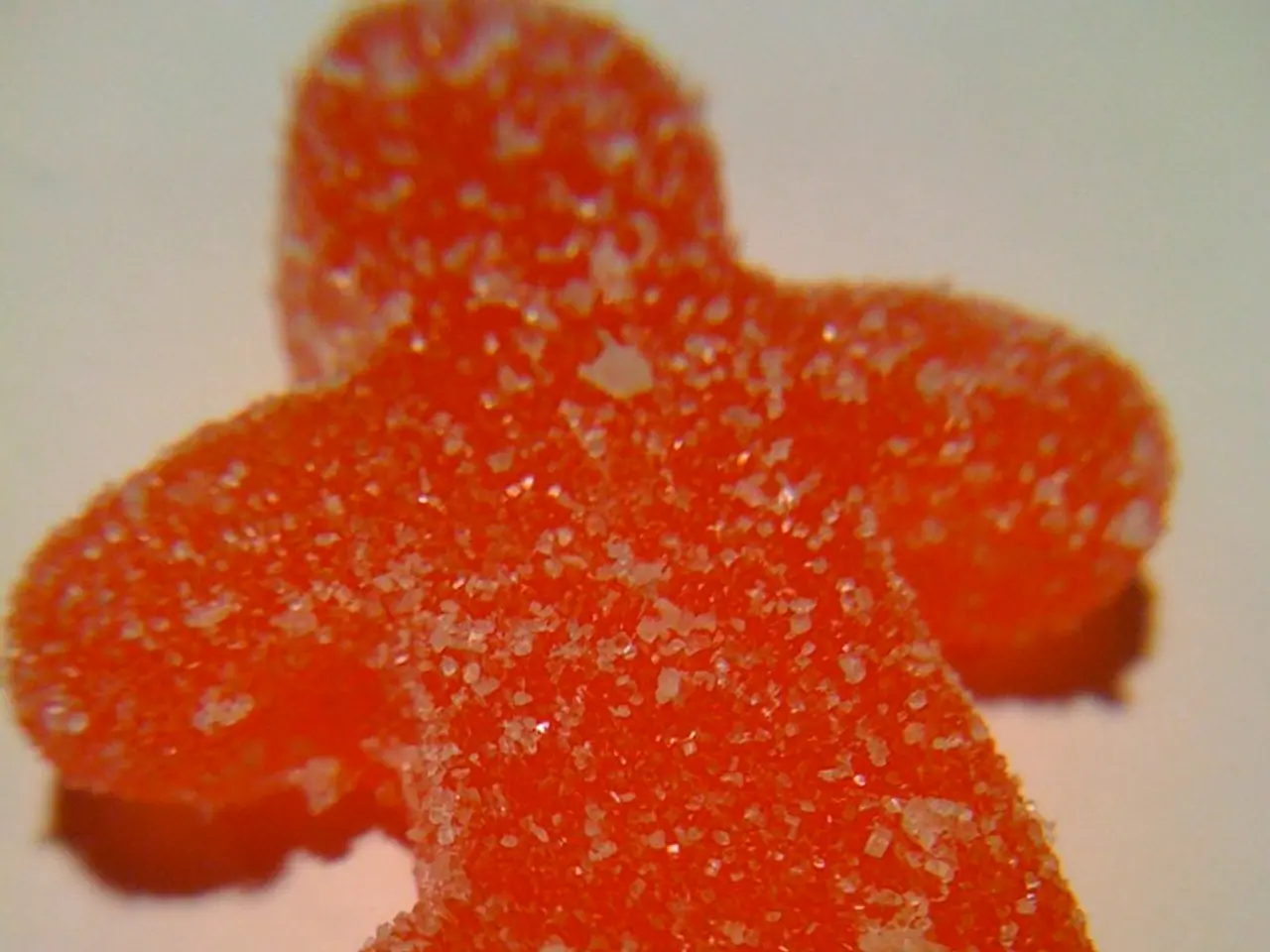Overcoming Sugar Dependency: The Challenges of Forgoing Sweets Delights
=====================================================================
Sugar cravings and the struggle to break free from sugar addiction are common challenges faced by many individuals. This issue is not merely about willpower, but rather a complex interplay of biological, psychological, and social factors.
Biologically, when we consume sugar, our brains release dopamine and endorphins, chemicals associated with pleasure and well-being. Over time, the brain develops a tolerance, requiring more sugar to achieve the same level of pleasure, reinforcing addictive behavior. Hormonal imbalances involving leptin, ghrelin, and serotonin also influence cravings and food intake regulation, making it harder to resist sugar[1][3][5]. Genetic predispositions can increase susceptibility to food addiction, meaning some people are inherently more vulnerable due to family history of addiction[5].
Psychologically, sugar consumption becomes linked to emotional coping mechanisms. Stress, anxiety, sadness, and other negative emotions increase cortisol levels, which heightens cravings for energy-dense sweet foods as a form of self-soothing. This emotional conditioning creates a learned association between sugar intake and temporary mood relief, perpetuating a cycle of emotional eating resembling addictive patterns[1][2][5]. Other factors like boredom, loneliness, and low self-esteem can also amplify cravings through psychological reinforcement[2].
Socially, the environment plays a big role. The easy availability of sugary foods in stores and restaurants, along with persuasive marketing and attractive packaging, constantly tempts individuals. Cultural and social norms often involve sugary treats in celebrations and social gatherings, embedding sugar consumption in routines and peer behavior that is difficult to resist[1][2][5].
In the battle against sugar cravings, there are strategies that can help. Progress in breaking a sugar addiction may be slow at first, but celebrating small victories can help motivate you towards long-term goals. Practicing mindful eating helps you become more aware of your body's hunger cues and emotional triggers for sugar cravings[1][4]. Trying healthier alternatives like dark chocolate, fruit, or a smoothie can satisfy your sweet tooth without causing the blood sugar spikes that lead to cravings[2].
Managing stress through exercise, relaxation techniques, and healthy coping mechanisms can help reduce these cravings. Surrounding yourself with supportive friends and family members can help keep you accountable in breaking free from sugar addiction[2]. Drinking plenty of water throughout the day can help prevent unnecessary cravings for sugar[3].
Breaking free from sugar addiction requires patience and perseverance, and can be achieved through gradual reduction and a focus on whole foods. It's important to remember that everyone's journey is unique, and what works for one person may not work for another. The key is to find a approach that suits your lifestyle and preferences, and to stay committed to making positive changes for your health.
[1] American Heart Association. (2019). Added Sugars in the Diet. [Online] Available at: https://www.heart.org/en/healthy-living/healthy-eating/eat-smart/sugar/added-sugars-in-the-diet
[2] National Eating Disorders Association. (2021). Sugar Addiction: What You Need to Know. [Online] Available at: https://www.nationaleatingdisorders.org/learn/by-eating-disorder/sugar-addiction
[3] Mayo Clinic. (2021). Sugar: How to reduce added sugars in your diet. [Online] Available at: https://www.mayoclinic.org/healthy-lifestyle/nutrition-and-healthy-eating/in-depth/sugar/art-20048418
[4] Mindful.org. (2021). Mindful Eating. [Online] Available at: https://www.mindful.org/mindful-eating/
[5] National Institute on Drug Abuse. (2020). DrugFacts: Understanding Drug Use and Health. [Online] Available at: https://www.drugabuse.gov/publications/drugfacts/understanding-drug-use-health
- Mindfulness practices can help become more aware of body's hunger cues and emotional triggers for sugar cravings, which can aid in breaking a sugar addiction.
- Exercise, relaxation techniques, and healthy coping mechanisms can help manage stress levels, thereby reducing these cravings.
- A lifestyle focused on health-and-wellness, fitness-and-exercise, and proper nutrition can contribute to breaking free from sugar addiction.
- Food-and-drink choices play a significant role in sugar intake; opting for healthier alternatives like dark chocolate, fruit, or smoothies can help manage sugar cravings.
- Science confirms that sugar consumption can become addictive due to factors like hormonal imbalances, emotional coping mechanisms, and social environment, and these biological, psychological, and social factors necessitate a comprehensive approach to combating sugar addiction.
- Incorporating workplace wellness programs that include mindfulness, exercise classes, and nutritional guidance can support individuals in their quest to lead a healthy lifestyle and break free from sugar addiction.




